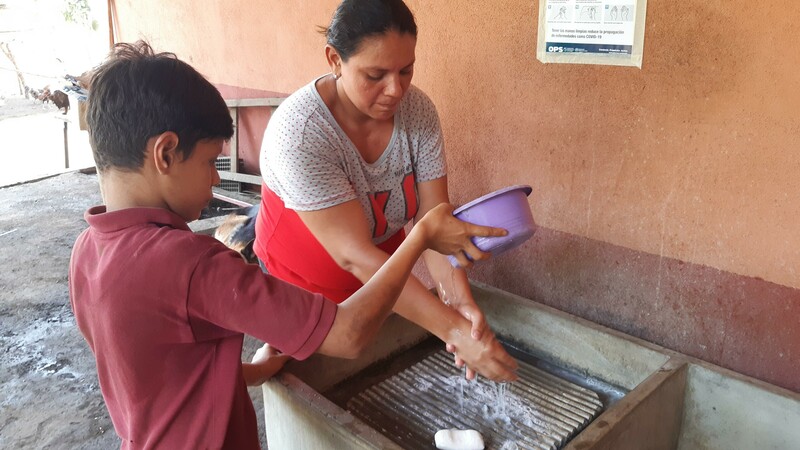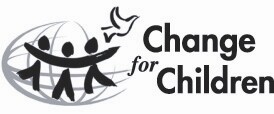Knowledge is Power in Isolated Communities
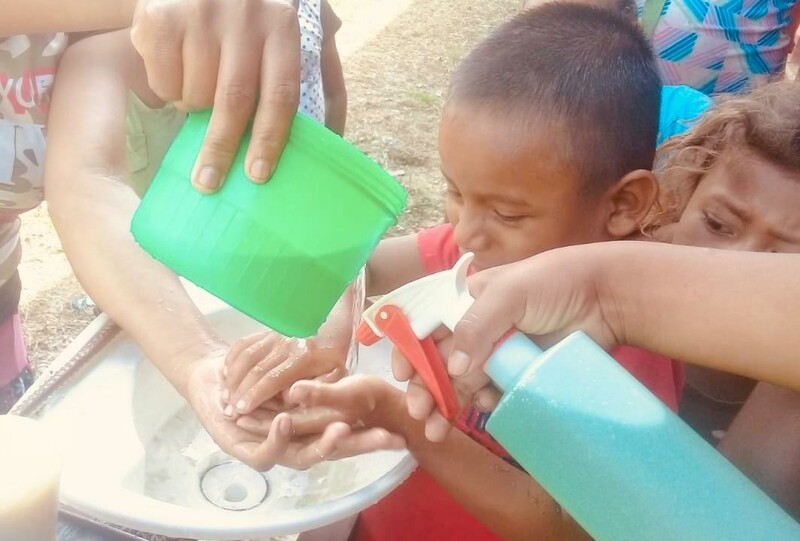
Team work to wash hands
Change for Children works across Latin America and Africa to address the root causes of poverty and to find long-term solutions for sustainable development.
In Bosawas, a biosphere reserve in the northern parts of Nicaragua, awareness in response to COVID-19 is critical for the safety of the remote communities. Tony Llorente, a local project facilitator, identifies the actions taken by Change for Children to best meet the needs of the communities in response to the ongoing pandemic.
“At first, we were extremely concerned about the deadly effects of the COVID-19 virus. Most of the communities lacked information about the situation. As soon as we learned more about the pandemic, we started to spread the word by talking to the leaders, elders, and students about prevention measures, causes, and symptoms of the virus."
Change for Children Association (CFCA), through SIMAS and GTI (the Indigenous Territorial Government), moved fast in deploying posters about the COVID-19 awareness, providing the villages and schools with supplies such as soap, hand sanitizers, tissues, alcohol and other important hygienic supplies. With these supplies we travelled to the communities we work with and the neighbouring villages to deliver the materials, and also organized meetings with school directors and community coordinators, creating awareness, educating our students, teachers, and everyone else in the community.
Being isolated is a good advantage but is not enough. We have learned that keeping a secure distance is necessary. Although the information and materials we have given away are important, there remains fear and uncertainty in the communities as it is a great distance to the nearest hospital. To avoid the spread of the pandemic, we continue to work closely with community leaders and students to follow the prevention measures, as we also work on caring for each other amidst this pandemic.
Providing for communities is not an easy task. Change for Children is taking the responsibility to do that as well. Moving across communities requires transportation expenses that are usually very high. We, as part of the territory, feel very thankful to have the full support of CFCA in this matter. Most communities do not have access to a cell tower signal. Those are the ones who have little to no access to COVID-19 information. We are very glad that we’ve been able to move to those communities to educate them about the pandemic, with the total support of CFCA, who currently has in place the Technology and Training for Quality and Equality project in Bosawas.”
– Tony Llorente, local project facilitator in the Bosawas.
Technology and Training for Quality and Equality project
“When water, supplies, and social distance are scarce, knowledge is power.”
Change for Children’s Technology and Training for Quality and Equality in the Bosawas project has employed and trained Indigenous Community Facilitators on the use of laptops and digital libraries and the process of leading teachers through teacher training via a Massive Online Open Course (MOOC). With the new skills to use technology as a tool, these same facilitators were enrolled in the Pan-American Health Organization’s COVID-19 Training MOOC. Through these modules, they learned how to recognize basic symptoms of respiratory infections, how to evaluate the risk of infections, and basic health and hygiene practices to protect against infections from COVID-19.
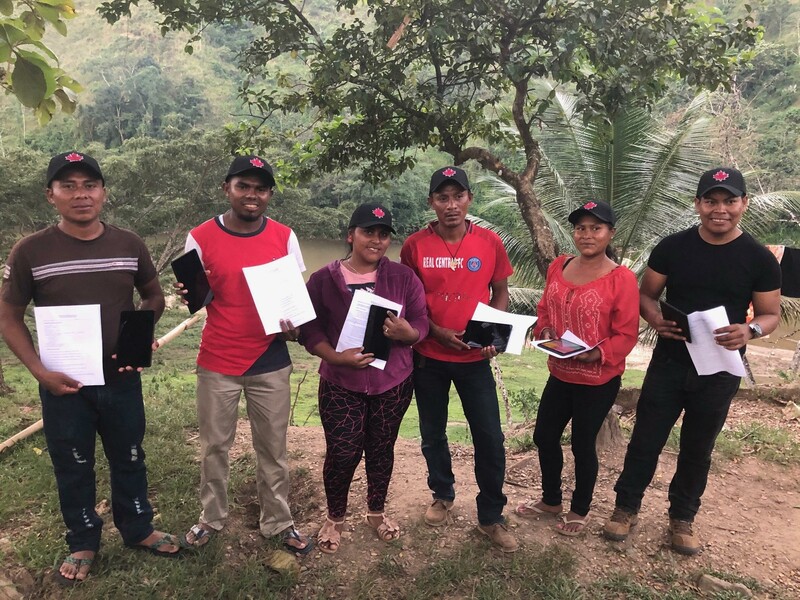
Indigenous Community Facilitators
These youth are working from four community base-camps along the upper Coco River in the Bosawas Biosphere Reserve to assist in the distribution of hygiene products, to demonstrate proper hand washing and sanitation techniques, and to promote awareness of prevention practices in local Miskito indigenous communities. The facilitators also translated COVID-19 prevention information into the Miskito language for distribution to further bridge the knowledge gap.
Nicaragua Water project
Access to clean water and knowledge, made possible through the Nicaragua Water Project, has played a key role in COVID-19 spread prevention in many communities. The critical importance of hand hygiene has been communicated and facilitated through the distribution of supplies and the dissemination of information.
Communities living in isolation are vulnerable to the lack of information and education around the COVID-19 crisis and often face limited water sources to combat the pandemic. To understand the significance of hand washing during these times, there must be quality education around its impact and importance. No matter what it looks like.
“It looks like hands being washed at outdoor spigots and wellheads. It looks like hands being washed at community taps and concrete basins. Sometimes it even looks like a team effort. But it looks like virus prevention nonetheless. And no matter the means, it’s a good look.”
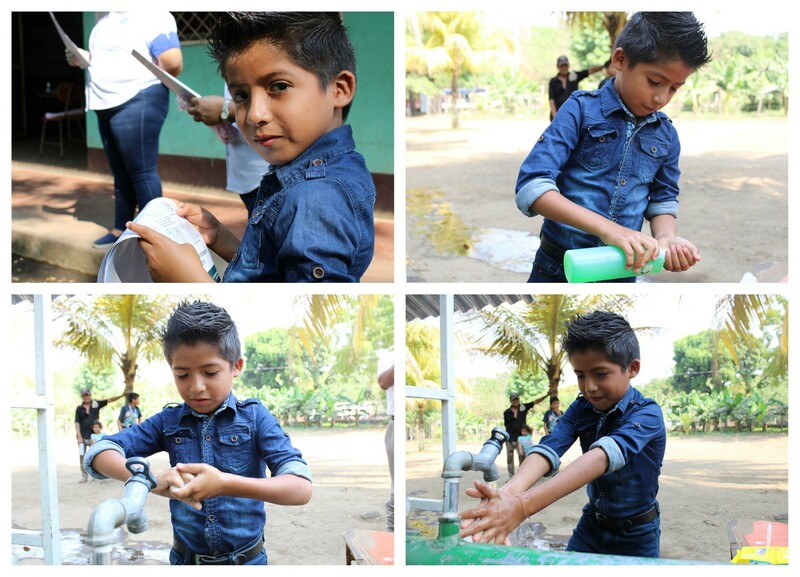
Young boy washing his hands
Clean, accessible water has been highlighted as a necessity for any community amidst the pandemic. In Nicaragua, it is not only an instrument of hygiene, but “will further encourage municipalities and governments to take increased action to tackle water access issues”. Projects like the Nicaragua Water Project have played a critical role in making water accessible and thus helping stop the spread of COVID-19.
Your support of the Nicaragua Water Project continues to be critical in making water accessible for so many. To donate: https://changeforchildren.org/donation-water-project/
